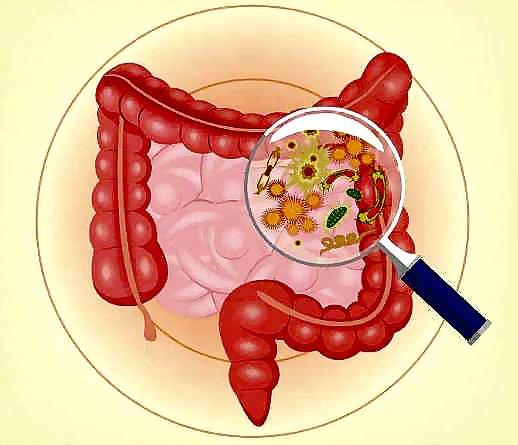Fernanda González, Miguel Cervantes, Adriana Morales, José Alan Valle, Reyna Lucero Camacho, A ngélica Morales-Becerra, Hugo Bernal, Santa M aría Mendoza, John K Htoo
 Exposing pigs to heat stress (HS) seems to modify the intestinal
microbiota which may compromise the integrity of the small intestine epithelia. Probiotics, live microorganisms, can help pigs to maintain a
healthy intestinal environment. Eighty
pigs (21.6 ± 3.4
kg body weight) exposed to HS or thermal neutral (TN) conditions were used to
evaluate the effect of a Bacillus subtilis-based probiotic on performance, body
temperature, and intestinal integrity. Treatments were:
TN pigs fed a control diet without (TN-C) or with 1 × 106 CFU
probiotic/g of feed (TN-P), and HS pigs fed a control without (HS-C) or with
probiotic (HS-P). The control diet was formulated with wheat, soybean meal,
and free amino acids (AA). Feed and water were freely available during the 21-d
study. At completion, samples from duodenum, jejunum, and ileum were collected
to analyze epithelial histology and tight junction protein expression;
antioxidant activity, and free AA and metabolites in serum. Relative abundance
of Lactobacillus, Bifidobacterium, Escherichia coli, and Bacillus in ileal
content was analyzed. Ambient temperature in the TN room ranged from 19 to 25
°C, and in HS room from 30 to 38.5 °C. Intestinal temperature in HS-P pigs was
lower than in HS-C pigs. Weight gain and feed intake
reduced, but feed:gain and respiration rate increased in HS compared to TN
pigs, regardless of diet (P < 0.01). Probiotic
increased weight gain and improved feed:gain (P < 0.05) in both TN and HS
pigs, but feed intake did not differ. Heat stress decreased villi height in
jejunum and villi height:crypt depth in duodenum and jejunum (P < 0.05). Probiotic increased villi height in duodenum
and ileum, and villi height:crypt depth in all small intestine segments (P <
0.05). Relative abundance of Lactobacillus and
Bifidobacterium tended to reduce, and E. coli tended to increase (P < 0.10)
in ileal content of HS-C pigs. Ileal relative abundance of Bacillus was
higher (P < 0.01) in HS-P pigs than in HS-C and TN-C pigs. Cystathionine, homocysteine, hydroxylysine,
α-amino-adipic acid, citrulline, α-amino-n-butyric acid, P-Ser, and taurine
were higher in HS than in TN pigs (P < 0.05). These data confirm the
negative effect of HS on performance, body temperature, and intestinal
integrity of pigs. These data suggest that supplementing 1 × 106 CFU probiotic/g of
feed based on Bacillus subtilis DSM 32540 may help to counteract the negative
effects of HS on the performance and intestinal integrity of pigs.
Exposing pigs to heat stress (HS) seems to modify the intestinal
microbiota which may compromise the integrity of the small intestine epithelia. Probiotics, live microorganisms, can help pigs to maintain a
healthy intestinal environment. Eighty
pigs (21.6 ± 3.4
kg body weight) exposed to HS or thermal neutral (TN) conditions were used to
evaluate the effect of a Bacillus subtilis-based probiotic on performance, body
temperature, and intestinal integrity. Treatments were:
TN pigs fed a control diet without (TN-C) or with 1 × 106 CFU
probiotic/g of feed (TN-P), and HS pigs fed a control without (HS-C) or with
probiotic (HS-P). The control diet was formulated with wheat, soybean meal,
and free amino acids (AA). Feed and water were freely available during the 21-d
study. At completion, samples from duodenum, jejunum, and ileum were collected
to analyze epithelial histology and tight junction protein expression;
antioxidant activity, and free AA and metabolites in serum. Relative abundance
of Lactobacillus, Bifidobacterium, Escherichia coli, and Bacillus in ileal
content was analyzed. Ambient temperature in the TN room ranged from 19 to 25
°C, and in HS room from 30 to 38.5 °C. Intestinal temperature in HS-P pigs was
lower than in HS-C pigs. Weight gain and feed intake
reduced, but feed:gain and respiration rate increased in HS compared to TN
pigs, regardless of diet (P < 0.01). Probiotic
increased weight gain and improved feed:gain (P < 0.05) in both TN and HS
pigs, but feed intake did not differ. Heat stress decreased villi height in
jejunum and villi height:crypt depth in duodenum and jejunum (P < 0.05). Probiotic increased villi height in duodenum
and ileum, and villi height:crypt depth in all small intestine segments (P <
0.05). Relative abundance of Lactobacillus and
Bifidobacterium tended to reduce, and E. coli tended to increase (P < 0.10)
in ileal content of HS-C pigs. Ileal relative abundance of Bacillus was
higher (P < 0.01) in HS-P pigs than in HS-C and TN-C pigs. Cystathionine, homocysteine, hydroxylysine,
α-amino-adipic acid, citrulline, α-amino-n-butyric acid, P-Ser, and taurine
were higher in HS than in TN pigs (P < 0.05). These data confirm the
negative effect of HS on performance, body temperature, and intestinal
integrity of pigs. These data suggest that supplementing 1 × 106 CFU probiotic/g of
feed based on Bacillus subtilis DSM 32540 may help to counteract the negative
effects of HS on the performance and intestinal integrity of pigs.
JAS, 2024, Volume 102, skae012
https://doi.org/10.1093/jas/skae012
Registration hotline: 021-57634675
fax: 021-57632800
Copy right : 上海亘泰实业集团
Collaboration & Sponsorship: 021-57634938 57631012
ASASHotline:021-67868428
Site Map | CNZZStatistics
address:Shanghai songjiang jiuting town nine new highway 90 lane 3 nine new commercial building 15 floor

WeChat ID:asaschina
The pig nutrition international BBS CSIS